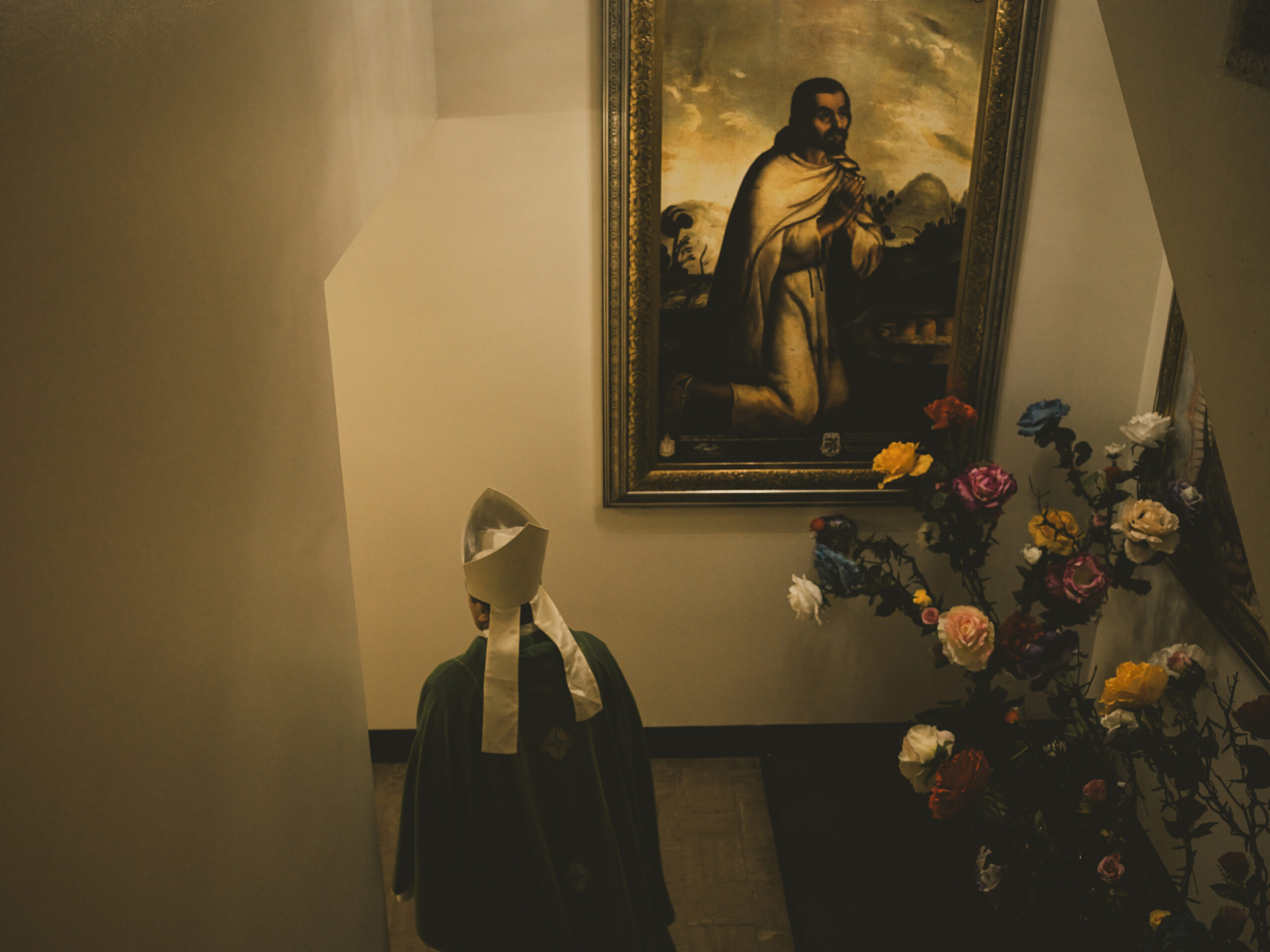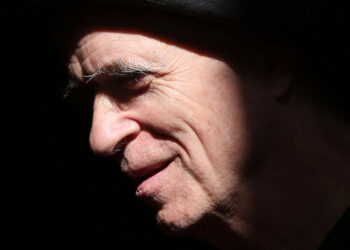
Thomas Banchoff is director of the Berkley Center for Religion, Peace, and World Affairs at Georgetown University.
Decades ago, Pope John Paul II made a plea for mercy. His 1980 encyclical “Dives in Misericordia” (“Rich in Mercy”) emphasized God’s forgiving love toward humanity and decried a widespread tendency to “remove from the human heart the very idea of mercy.” Instead of mercy, John Paul saw a rise in “spite, hatred and even cruelty.”
Thomas Banchoff is director of the Berkley Center for Religion, Peace, and World Affairs at Georgetown University.
Decades ago, Pope John Paul II made a plea for mercy. His 1980 encyclical “Dives in Misericordia” (“Rich in Mercy”) emphasized God’s forgiving love toward humanity and decried a widespread tendency to “remove from the human heart the very idea of mercy.” Instead of mercy, John Paul saw a rise in “spite, hatred and even cruelty.”
Mercy is painfully scarce in our politics today. When the Right Rev. Mariann Budde, the Episcopal bishop of Washington, appealed to President Donald Trump from the pulpit in January to show mercy toward the vulnerable, the president bristled and demanded an apology. In the months since, his administration’s policies have been rife with cruelty, from eliminating life-giving aid programs abroad to threatening to withhold food assistance for more than 40 million Americans.
Trump’s mass deportation program has been particularly merciless, criminalizing those who once entered the country illegally but have long been law-abiding and productive members of our communities. The Rev. Evelio Menjivar-Ayala, a former undocumented migrant from El Salvador who serves as auxiliary Catholic bishop in D.C., has called out the cruelty. “Do you not see the suffering of your neighbors?” he wrote in April. “Do you not realize the pain and misery and very real fear and anxiety these unjust government operations and policies are causing?”
Menjivar-Ayala’s evocation of suffering recalls the Latin word for mercy in the title of John Paul’s encyclical — misericordia, “a heart for those in misery.” The emotional core of mercy, its recognition of human frailty and our dependence on one another, conflicts with the culture of individual freedom and the pursuit of self-interest that dominates politics in the United States.
Liberals and conservatives shy away from mercy in politics. Conservatives see mercy as a moral virtue to be practiced in family and community settings that has little place in political life, where the clash of interests and the rule of law should prevail. Liberals tend to see mercy as a poor substitute for justice. While it evokes the reality of suffering and the moral obligation of the powerful to address it, mercy downplays the agency of the downtrodden and their demands for systemic change. While not opposed to personal and community engagement on behalf of the poor and marginalized, liberals place greater emphasis on social justice through state action.
Catholic social teaching insists on mercy as a political and personal imperative. Ever since Pope Leo XIII addressed the social upheaval of the industrial revolution in his 1891 encyclical “Rerum Novarum,” the Roman Catholic Church has insisted that the modern state protect the dignity of the human person, with a focus on the poor and the powerless. Jesus’ injunction in the Gospel of Matthew to feed and clothe the poor, heal the sick, visit the prisoner and welcome the stranger — to embrace what Catholics came to call “corporal works of mercy” — is binding on believers at a personal level. But it also animates the Catholic vision of a just society and a well-ordered state. As the church echoes conservative support for limited government and the rule of law, it also insists on a fair distribution of wealth and on what John Paul called “measures inspired by solidarity and love of preference for the poor.” While the church insists, with liberals, on social justice as a goal of public policy, it also emphasizes the centrality of mercy at a personal level — support for those in pain and need.
The Catholic church is not alone in calling for compassion and care. Humanity’s great ethical and spiritual traditions converge around love and mercy as core values. But as the world’s largest religious institution and a force in U.S. politics, the church remains a critical voice calling out cruelty and indifference. “Are those born with fewer opportunities of lesser value as human beings?” Pope Leo XIV asked last month in a major statement on love for the poor in which he invoked mercy more than a dozen times. “Should they limit themselves merely to surviving?” Answers to these questions, the first American pope insisted, will shape the future of our societies. “Either we regain our moral and spiritual dignity or we fall into a cesspool.”
Any effort to bring back mercy in public life has to contend with increasing economic segregation in the U.S. The rise of gated communities and the decline of mixed-income neighborhoods have made the poor and the undocumented increasingly invisible to many. It is easier to denigrate empathy when one is physically shielded from the suffering of others, including millions facing food insecurity and the hundreds of thousands of unhoused.
With social media and the artificial intelligence revolution further deepening our mutual isolation, we must be intentional about seeking out vulnerable neighbors and practicing the countercultural virtue of mercy — giving more than is required of our time and resources to those in need. “We are called to promote a culture of mercy based on the rediscovery of encounter with others,” Pope Francis wrote in 2016, “a culture in which no one looks at another with indifference or turns away from the suffering of our brothers and sisters.” Such a culture shift will take time. But only citizens who practice mercy themselves are likely to demand it from their politicians.
The post What happened to mercy?
appeared first on Washington Post.




